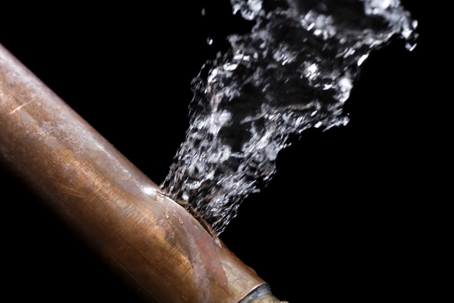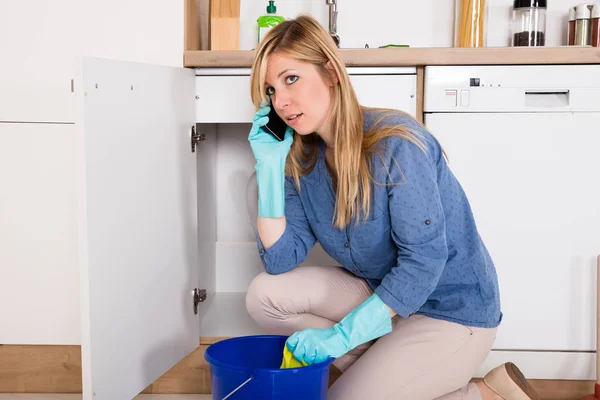Key Plumbing Tips for Urgent Issues: Steps to Take Until Assistance Arrives
Key Plumbing Tips for Urgent Issues: Steps to Take Until Assistance Arrives
Blog Article
What are your ideas on What to Do While Waiting for an Emergency Plumber?

Plumbing emergencies can strike any time, causing tension and possible damage to your home. Whether it's a burst pipe, a clogged up drainpipe, or a leaking faucet, recognizing exactly how to manage the circumstance until a specialist plumbing professional arrives can conserve you from additional issues. This article provides vital emergency situation plumbing tips to help you alleviate damages and reclaim control throughout a pipes crisis.
Turn Off the Water System
The first step in any plumbing emergency situation is to shut down the supply of water. For local problems, such as a dripping faucet or bathroom, switch off the shutoff near the component. When it comes to a major leak or burst pipe, locate your home's main water shut-off shutoff and transform it off immediately. Knowing the location of these shutoffs in advance can save important time during an emergency.
Shut down Your Water Heater
In certain emergencies, such as a ruptured pipe, it's wise to shut off your hot water heater. This stops overheating or damages to the device when water quits streaming. Turn off the power supply to the hot water heater (electrical or gas) and let it cool down to avoid prospective dangers.
Temporarily Quit a Burst Pipe
A ruptured pipeline can cause considerable water damage in minutes. To alleviate the problem:
Call a professional plumber instantly to attend to the trouble permanently.
Have an Emergency Situation Plumbing Set
Prepare a standard plumbing emergency set to handle minor issues successfully. Your kit ought to include:
Having these devices on hand can make a substantial difference in your ability to manage emergency situations.
Unclog Drains Pipes Securely.
A stopped up drain can be an aggravating and untidy issue. Below's just how to tackle it:.
If these techniques do not function, avoid using too much force, as it might get worse the obstruction.
Take Care Of Overflowing Toilets.
An overflowing commode can trigger prompt turmoil. Here's what you ought to do:.
Address Small Leakages with Short-term Fixes.
Tiny leaks can rapidly end up being substantial issues if left unchecked. Use these momentary fixes till specialist assistance gets here:.
While these fixes aren't long-term, they can aid decrease water loss and damage.
Handle Frozen Pipeline Thoroughly.
In chillier environments, icy pipelines are a common emergency. If you think an icy pipeline:.
Know When to Call a Professional.
While quick fixes can help temporarily, certain plumbing issues require immediate professional attention. Call a plumbing if:.
Quickly getting in touch with a professional ensures the concern is dealt with appropriately and stops additional complications.
Protect against More Damage.
Taking quick activity to lessen damage can save you money and time over time. Right here's how:.
Verdict.
Pipes emergencies can be frustrating, however with the right expertise and tools, you can take care of the circumstance properly until aid shows up. By turning off the water, attending to little leakages, and using momentary solutions, you can minimize damages and maintain your home safe. Remember, these ideas are short-lived services; always speak with an accredited plumber to manage the source of the trouble. Preparation and quick reasoning are your ideal allies in any plumbing emergency.
8 Helpful Tips for Managing Plumbing Emergencies at Home
If your plumbing system hasn’t failed once, wait for it because almost everyone has a story to tell. Sometimes, it could be simple emergencies such as a leaking pipe, a blocked cistern, or even a big burst pipe. In situations like this, you need to have some handy tips to save you some money and from possible damages.
Take care of minor issues early.
Sometimes, you could have avoided an emergency by taking proactive measures while it was still early. Some major plumbing emergencies can be a result of an ignored minor issue. We recommend that you have items like plumbing tapes and other related items. A plumbing tape can allow you to manage minor leaks before the plumber arrives.
Cut off the water supply.
This tip is essential in almost any type of leakage problem. For problems like minor leakages in the toilet or kitchen, turn off the supply that takes water to the affected pipes. If the leakage is a major pipe, you must shut off the supply valve to the entire building. This will help you avoid flooding your home and neighbors if you share a flat.
Know your plumbing system
Folks typically move into a new apartment without understanding the water supply around the building. This can prove disastrous if a water emergency arises and the plumber is far away. The previous tip will prove useless if you don’t practice this one. More importantly, know where your water shut-off valve is located – you’ll need that knowledge to prevent potential home floods.
Have some common handy tools
There are lots of plumbing emergencies that you can handle without hiring a plumber. That’s why you must keep some tools available always. Some tools that you can use to fix simple plumbing emergencies easily include plumbing tapes, screwdrivers, thread seal tapes, plungers, pliers, tape measures, and rubber gloves.
Insulate your pipes from cold
You’ll save yourself from many plumbing expenses if you protect your water pipes from the cold. This is because of the harmful effects that cold weather can have on your pipes. During winter, your pipes can burst from being overly expected to freezing temperatures. So, make sure insulators are there to keep the pipes working correctly.
Avoid practices that will clog your toilet.
Many people indulge in practices that can damage the plumbing system of the entire building. One of these is when they use their toilet to dispose-off garbage. They flush all kinds of things, such as paper towels, bandages, hairs, female sanitary products, etc., down the toilet. This will block your toilet in the long run, incurring unnecessary expenditures. Dump such waste in the trash instead.
Check your dials regularly.
Sometimes, there could be leakages in your home without noticing them in time. So, constantly monitor your water meter dial. If the dial is reading when there is nobody using water, this is an indicator that there is leaking. Check for leaks immediately. Call a plumber as soon as possible if you can’t find any.
https://www.constructionplacements.com/8-helpful-tips-for-managing-plumbing-emergencies-at-home/

We hope you liked our part on What to Do During a Plumbing Emergency. Thanks a ton for taking time to browse our article. For those who enjoyed reading our post kindly do not forget to share it. Kudos for being here. Don't forget to pay a visit to our blog back soon.
Find Out More Report this page